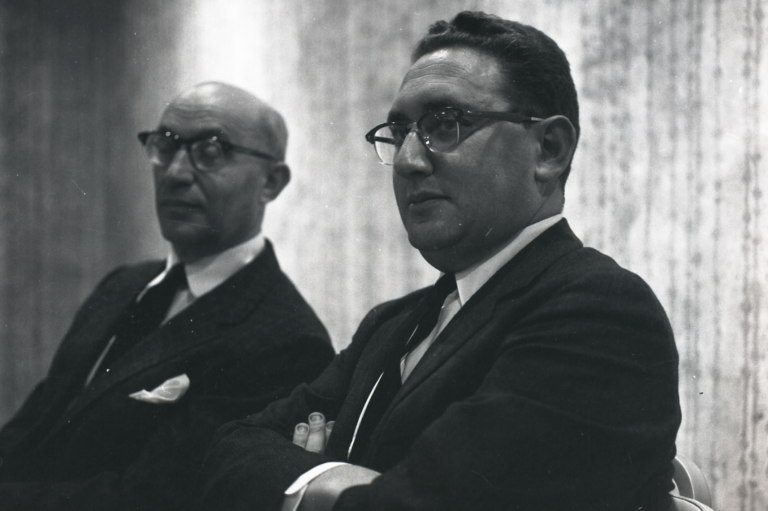For the past twenty years, David Brooks has been The New York Times’ lone columnist daring to be occasionally conservative.
His most recent piece, “The Crisis of Men and Boys,” gropes for causes of the withering away of masculinity in American life.
Statistics abound. Girls do better than boys in school and stay longer. More women than men go to college. Women are more responsible than men. They strive harder and survive better in adversity.
One in three American men with only a high school diploma — ten million men — is now out of the labor force. While men’s lifetime earnings have fallen, those of women have risen.
Men lack ambition. They are demoralized. They lack initiative to achieve and to succeed. They account for almost 75% of suicides.
Thus far the statistics. Brooks searches for causes, but the best he can do is surmise. He comes closest to the core when he observes family breakdown, but two years ago he praised it — in fact, he answered his own question. “The nuclear family was a mistake,” he wrote in Atlantic Magazine.
Let’s face it. The very real symptoms that Brooks can’t face point towards a factor so huge that many don’t consider it a cause — it’s just “reality.”
I’m talking about the sexual revolution. And that means The Pill.
And that means abortion.
Of Malthus and Men
A century ago, Margaret Sanger, foundress of Planned Parenthood, began a eugenics campaign to eliminate the unfit—which meant just about everyone who was black, brown, southern, or dumb. Her approach was called eugenics—mingling the Greek word for “good” with the Latin word for “people”—with an evil twist, of course.
Eliminate all but the “good” people, said Sanger. Because a century ago, there were too many “bad” people.
Sanger was one of eleven children born in an Irish Catholic family. I wonder, how many of her siblings would have passed muster in her Brave New World?
The masthead of Sanger’s magazine, Birth Control Review, boasted its goal: “Birth Control: To Create a Race of Thoroughbreds.”
After World War Two, commentator R.C. Martens parroted the Malthusian lie in the Review when he wrote, “Within the next few months millions of human beings, mostly Europeans, will starve to death. The crash which will cost uncounted millions of lives.”
The crash never came, of course, but that didn’t stop Stanford’s Paul Ehrlich from predicting it again a generation later in The Population Bomb. “In the 1970s the world will undergo famines—hundreds of millions of people will starve to death in spite of any crash programs embarked upon now,” he wrote in 1968.
Wrong again, but so what? This time around, the culture had been prepared as population planners lay the grounds for eliminating not only the “blacks and browns” but also the “surplus population.”
A Silent Church Greets the Great Society
In the mid-1960s, Lyndon Johnson’s Great Society began funding abortifacients as part of the Federal Government’s intrusion into family law (the propaganda codeword was “family planning”). The initiative had bipartisan support from population controllers, both on Capitol Hill and among the elites.
And there began the dissolution of the family—especially black families. As economist Walter Williams recounts,
The No. 1 problem among blacks is the effects stemming from a very weak family structure. Children from fatherless homes are likelier to drop out of high school, die by suicide, have behavioral disorders, join gangs, commit crimes and end up in prison. They are also likelier to live in poverty-stricken households. But is the weak black family a legacy of slavery? In 1960, just 22 percent of black children were raised in single-parent families. Fifty years later, more than 70 percent of black children were raised in single-parent families. Here’s my question: Was the increase in single-parent black families after 1960 a legacy of slavery, or might it be a legacy of the welfare state ushered in by the War on Poverty?
Wait a minute. Could the family breakdown Dr. Williams identifies be a contributing factor—perhaps a pivotal one—to the crisis that Mr. Brooks describes?
Certainly, when government at any level steps in to assume the role of the prime financial provider for mothers and their children, that must have an impact on the role of fathers. And isn’t fatherhood a rather fundamental factor when it comes to “masculinity”?
Dr. Thomas Sowell, a sober analyst of the decline of the black family, insists that government programs styled after the “Great Society”—that continue to this day—share the blame for the growth of a “fatherless underclass.”
Perhaps he’s right. But who, else shares the blame?
LBJ’s allocation of taxpayer funds for abortifacients flies in the face of natural law and Catholic teaching. However, historian Donald Critchlow found little resistance to these programs among America’s Catholic hierarchy. While many leaders among the laity called upon them to renounce the government’s immoral initiatives, America’s bishops remained silent—and to this day, they have never opposed government funding of “family planning” in foreign aid programs—even when it included the funding of abortion under Democrat presidents.
What caused them to fail so profoundly in their consecrated duty? Were they among the men whom Brooks describes as “demoralized” and “lacking initiative”?
Whatever the answer, one thing is clear: they were not alone.
Enter The Feminists
Archie Bunker sure was, and he was not born in a vacuum. He was the product of a determined ideology bent on destroying the family. Yes, government programs played their part, but feminists played theirs, and they focused on the culture.
In the 1960’s, the feminists targeted “Kinder, Küche, Kirche”— “Children, Kitchen, and Church”—as Public Enemy Number One. The Pill became their preferred weapon.
The “contraceptive mentality” that resulted quickly led to abortion, of course, and its impact was universal.
As the sexual revolution got under way, so did the broader social version. The strategy was as simple as it was vile: as women became more dependent on their own income, they were invited to see children—their own flesh and blood—as an impediment to their income and thus to their lifestyle. The argument: the lives of homemakers with a lot of children were now decidedly less financially attractive and more socially burdensome than the alternative.
Or so sang the sirens. But the lie was laid by a troika of traitors.
A Deadly Trio
The deal was done some fifty years ago. Government, business, and radical feminists united to “liberate” millions of women to leave the home and join the paid workforce.
Cui bono?
Government gained twenty million more taxpayers, as women left their family (or never began one) to work outside the home. Millions more replaced them to perform the work that mothers had formerly done at home—daycare workers, housecleaners, gardeners, and the like.
We note that both groups of new workers had never paid taxes before, even though they had worked very hard inside the home.
But the strategy was successful. In those days, a blue-collar worker in my hometown could afford to raise a family on one salary in a home they owned.
Not anymore.
Business benefited from Supply-and-Demand 101: twenty million new workers were suddenly in a marketplace which offered far fewer available jobs. Employers could call the shots, and they did. It’s no mystery that middle-class incomes in America have been flat ever since.
So, while government and business profited, feminists, the third member of the cultural cabal, cheered. Soon women would have Roe v. Wade, free love, and their own money! What could go wrong?
Lots.
Suddenly, a woman “was responsible for taking her own family planning measures.” And in the prophetic words of Saint Pope Paul VI in Humanae Vitae, the man could “reduce her to being a mere instrument for the satisfaction of his own desires, no longer considering her as his partner whom he should surround with care and affection.”
Loretta Lynn Dies, Her Message Lives On
Loretta Lynn was the most popular country star of her generation.
Fifty years ago, she recorded a song that, in my view, is a linchpin of cultural history.
And the day that I first heard “Now I’ve Got the Pill,” I knew we had lost. It was downhill from there.
“All these years I’ve stayed at home while you had all your fun,” she sang, “and every year that’s gone by another baby’s come. There’s a gonna be some changes made right here on nursery hill… Oh daddy don’t you worry none, ’cause mama’s got the pill.”
Isn’t that considerate of Loretta? She wants to party just like her husband apparently does, but she assures him, she’s still sexually available. “Don’t you go runnin off now!”
Well, in 1972 I was working my way through grad school as a musician in Nashville. When this song appeared, country music had been a first cousin to Gospel for years. These were the only genres of music that the entire family—grandma, mom and dad, and all the kids could listen to in the living room without somebody being shocked—or bored stiff. But later in the 1970s, “pop music” got so squalid—remember Disco? —that country music moved into the mainstream, and by that, I mean it caught up with “the spirit of the times” — and, translated, that means the sexual revolution.
Sure, a lot of pointy-headed intellectuals knew about Ehrlich’s best-seller. But Loretta Lynn’s message reached millions of ears that would never hear Paul Ehrlich’s.
Loretta Lynn died last week. May she rest in peace.
Her message is still alive and well—and that’s why “masculinity” is dying.











